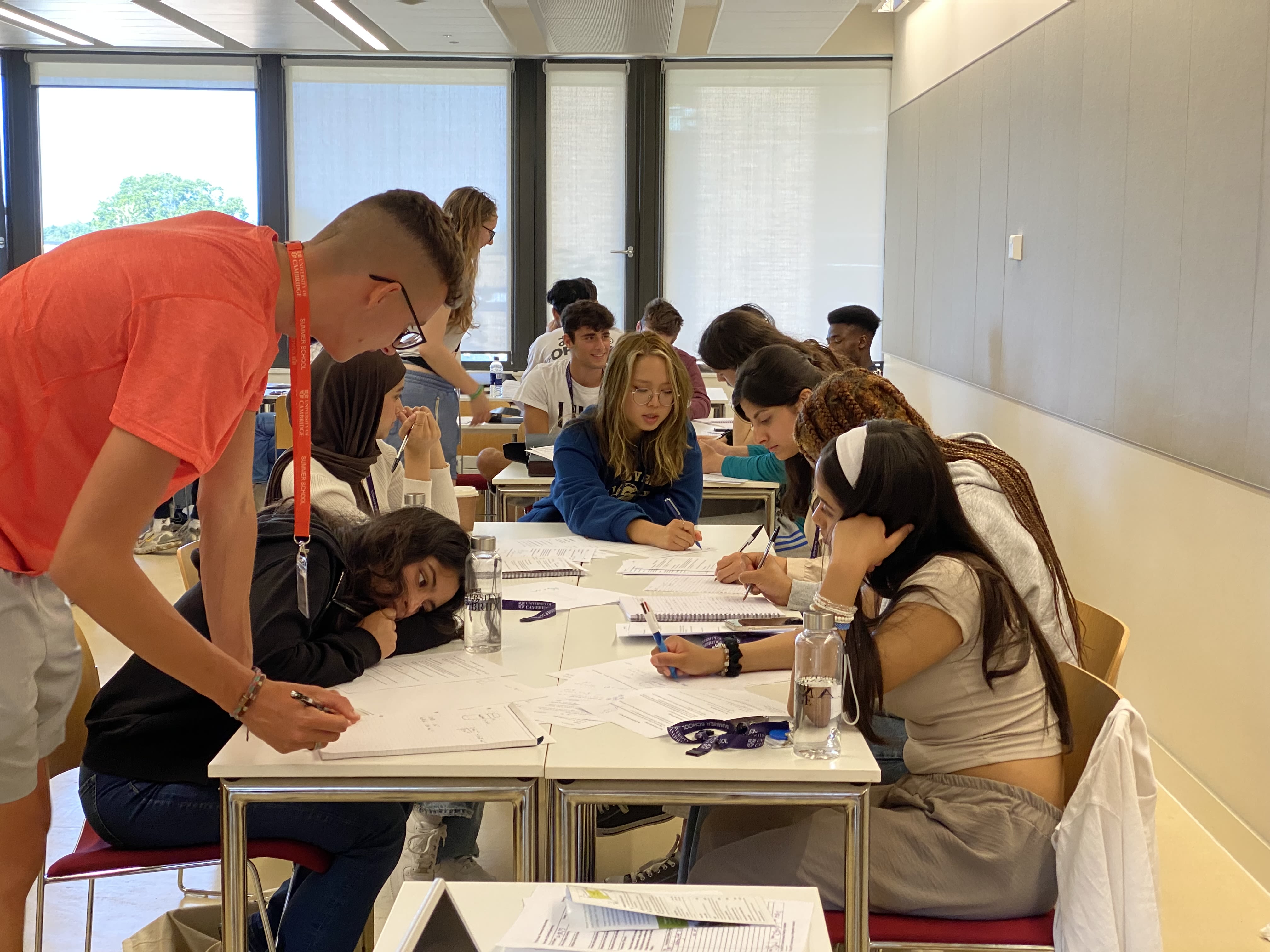CEB hosts Sutton Trust Summer School 2023

From 15-18 August 2023, CEB opened its doors for the Sutton Trust 2023 Summer School, drawing together insights from the food industry through Nestlé representatives and CEB expertise.
The Sutton Trust champions social mobility and partners with universities to offer programmes designed to support high-achieving students from disadvantaged backgrounds. Selected year 12 students were invited to stay at a Cambridge college for a week and experience world-class teaching and engage with academics and current undergraduates in their subjects of interest. The Sutton Trust residentials are free to attend.
This year’s summer school programme tasked the sixth formers to work in teams on a 4-day challenge: Designing and manufacturing five identical chocolate bars to an appealing and innovative design. The sixth formers needed to learn about and apply principles of product design, computer-aided design, fluid mechanics, process control and process economics and sustainability to be successful. The four days revolved around a blend of academic lectures and workshops, thoughtfully combined with hands-on activities in our state-of-the-art Makerspace facility, the teaching lab and the computing suite. Undergraduate students from the department acted as mentors, guiding the participants through their practical sessions.
The residential was kicked off by a fascinating lecture on the science of chocolate by Professor Ian Wilson, an expert in soft solids and surfaces, which explored the aspects of the production of chocolate, from sourcing raw materials to achieving the perfect temper such that the chocolate has a delicious mouthfeel. The participants then enjoyed a chocolate tasting, experiencing first-hand the importance of raw materials, manufacturing route and temper.
A special mention goes to alumnus Aiden Goulden, who delivered an insightful lecture on sustainability and economics based on his own experiences as a chemical engineer. This included a workshop on using modern technology, process economics and assessing the environmental impact to help students understand real-life process engineering challenges.
As part of the practical activities, students’ designs were brought to life overnight through 3D printing. The next step involved crafting chocolate moulds from these prints using vacuum-forming and subsequently filling the moulds with an accurate mass of chocolate to achieve a consistent and appealing chocolate bar at the end of the week.
CEB graduate Dr Jan Engmann, R&D Expert at the Nestlé Institute of Food Sciences in Lausanne, joined us to help deliver the programme:
“It was an honour to contribute to the summer school event with Cambridge University CEB and the Sutton Trust. I enjoyed providing my perspective as a chemical engineer working in the food industry, and how we contribute with our expertise during product innovation to turn product ideas into technically and commercially viable solutions. I was impressed with the students’ creativity teamwork and how quickly they absorbed very different types of knowledge and skills in just a few days, turning ideas into prototypes and enthusiastic presentations. I am sure the event helped to inspire the next generation of chemical engineers, showing them the richness and exciting challenges to come.”
The week culminated in the students competing for a trophy by presenting their newly minted chocolate creations to a distinguished panel of experts.
Our academic organisers, Teaching Professor Dr Kamran Yunus, and Dr Zach Bond, Teaching Associate, commented on the impact of this outreach initiative:
“The summer school gave us the opportunity to show that even apparently simple products depend on complicated and fascinating processing techniques developed and refined by chemical engineers and biotechnologists. Our intention was to show that studying chemical engineering and biotechnology at undergraduate level is enjoyable and equips undergraduates with the tools they need to analyse, design and optimise systems for producing any product, from sustainable electricity to their favourite chocolate bar.”
It is evident that summer school participants gained more than just knowledge about chemical engineering and the undergraduate-level teaching thereof; they experienced its vast applications and crucial role in addressing global challenges.
In light of this year's success, plans are already underway to accommodate more students in future iterations of the programme.
Prospective students interested in applying for a funded place at next year's Sutton Trust Summer School in chemical engineering and biotechnology can find more information here.
Graduates interested in providing practical support, please contact Elena Gonzalez on outreach@ceb.cam.ac.uk




